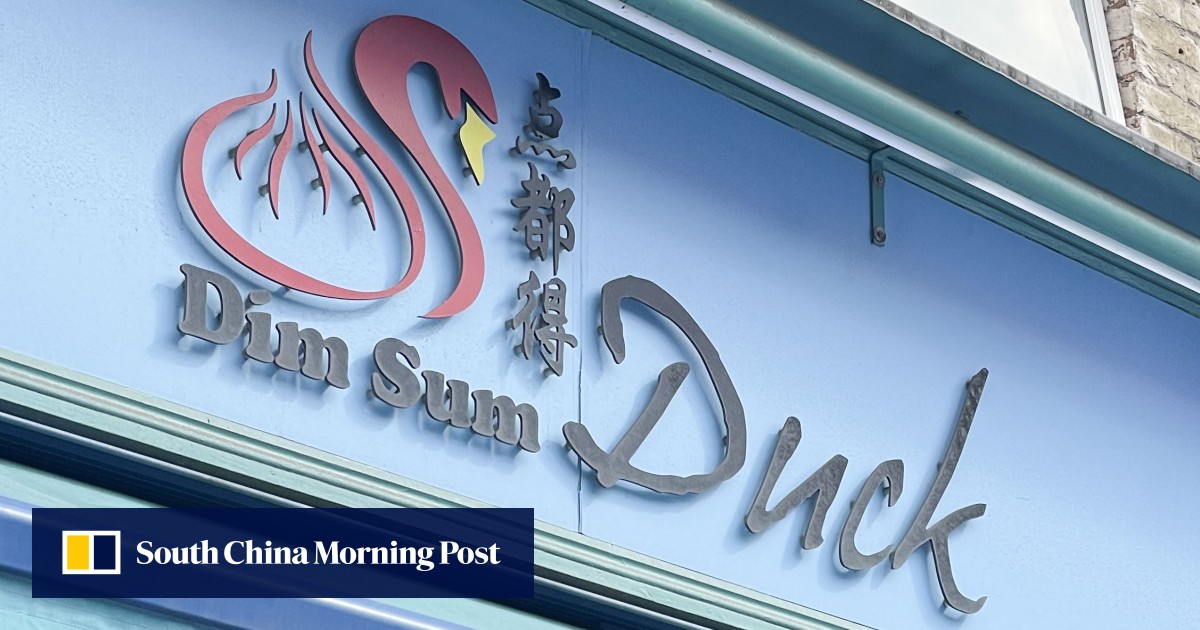Hidden messages in Chinese names of Britain’s Chinese restaurants

🌈 Abstract
The article explores how Chinese restaurants in Britain often have Chinese names that conceal puns or hidden messages, serving as encoded in-jokes for the Chinese diaspora. It examines various examples of such wordplay and hidden meanings in the names of Chinese restaurants in the UK, highlighting how the translational in-jokes go both ways between Anglophones and Sinophones.
🙋 Q&A
[01] How British Chinese restaurants' Chinese names can hide witty messages and clever wordplay
1. What are some examples of Chinese restaurant names in Britain that conceal puns or hidden messages?
- Dim Sum Duck in London has a Chinese name "点都得" that is a close phoneticization of the English name but means "anything is possible" or "nothing goes wrong" in Cantonese.
- Shu La La in London has a Chinese name "蜀一蜀二" that is a clever homophone of "数一数二" meaning "one of the very best", with the "数" swapped out for "蜀" referencing the ancient Shu kingdom (Sichuan province).
- Chow in Glasgow has a Chinese name "不見不散" meaning "be there or be square" or "see you there", which could be a homophone for "ciao".
- Fusion Takeaway in Stornoway has a Chinese name "富山" meaning "rich with mountains", which is also the Japanese name for the city of Toyama.
2. How do these hidden messages and puns serve as encoded in-jokes for the Chinese diaspora?
- The article suggests these names are "encoding a little in-joke for the overseas Chinese community, a hidden message for posterity" that may go over the heads of the general British clientele.
- The wordplay and hidden meanings require a certain level of fluency in Chinese and familiarity with Chinese culture and language to fully appreciate.
3. What is the significance of these translational in-jokes going both ways between Anglophones and Sinophones?
- The article notes that "the translational in-jokes go both ways", such as with the Hong Kong restaurant name "Ho Lee Fook" which was reverse engineered from English.
- This suggests a playful back-and-forth between the two language groups in creating these types of encoded names.
[02] The prevalence and diversity of wordplay in Chinese restaurant names
1. What are some common themes or patterns observed in the Chinese naming conventions of British Chinese restaurants?
- The article mentions a range of naming conventions, from "off-putting" (e.g. "ants climbing a tree"), to folkloric (e.g. "crossing-the-bridge noodles"), to visually figurative (e.g. "squirrel fish").
- It also notes that some names have no correlation between the English and Chinese versions, potentially harkening back to an earlier era when nuances would have been lost on British clientele.
2. How do these names require different levels of linguistic and cultural knowledge to fully understand?
- The article states that "understanding dish names requires some level of fluency in Chinese, though not always" when it comes to the English versions.
- However, deciphering the hidden meanings and puns in the Chinese names often requires more in-depth knowledge of Chinese language, culture, and history.
3. What does the prevalence of this wordplay in Chinese restaurant names say about the relationship between Anglophones and Sinophones?
- The article suggests these names are a way for the Chinese diaspora to encode "in-jokes" and "hidden messages" that may not be accessible to the general British public.
- This points to a certain duality or separation between the two language/cultural groups, even as they interact through the medium of Chinese restaurants.